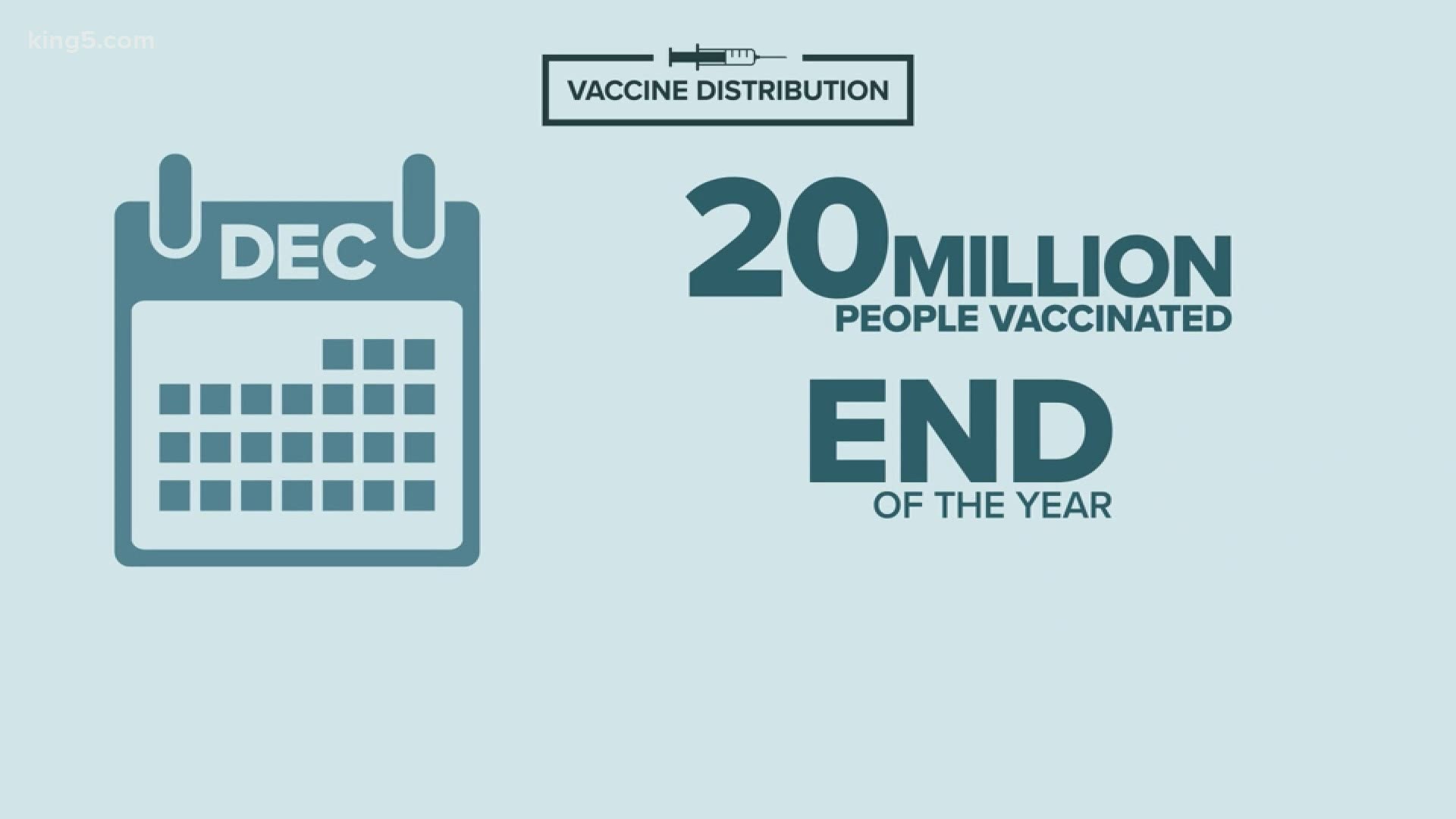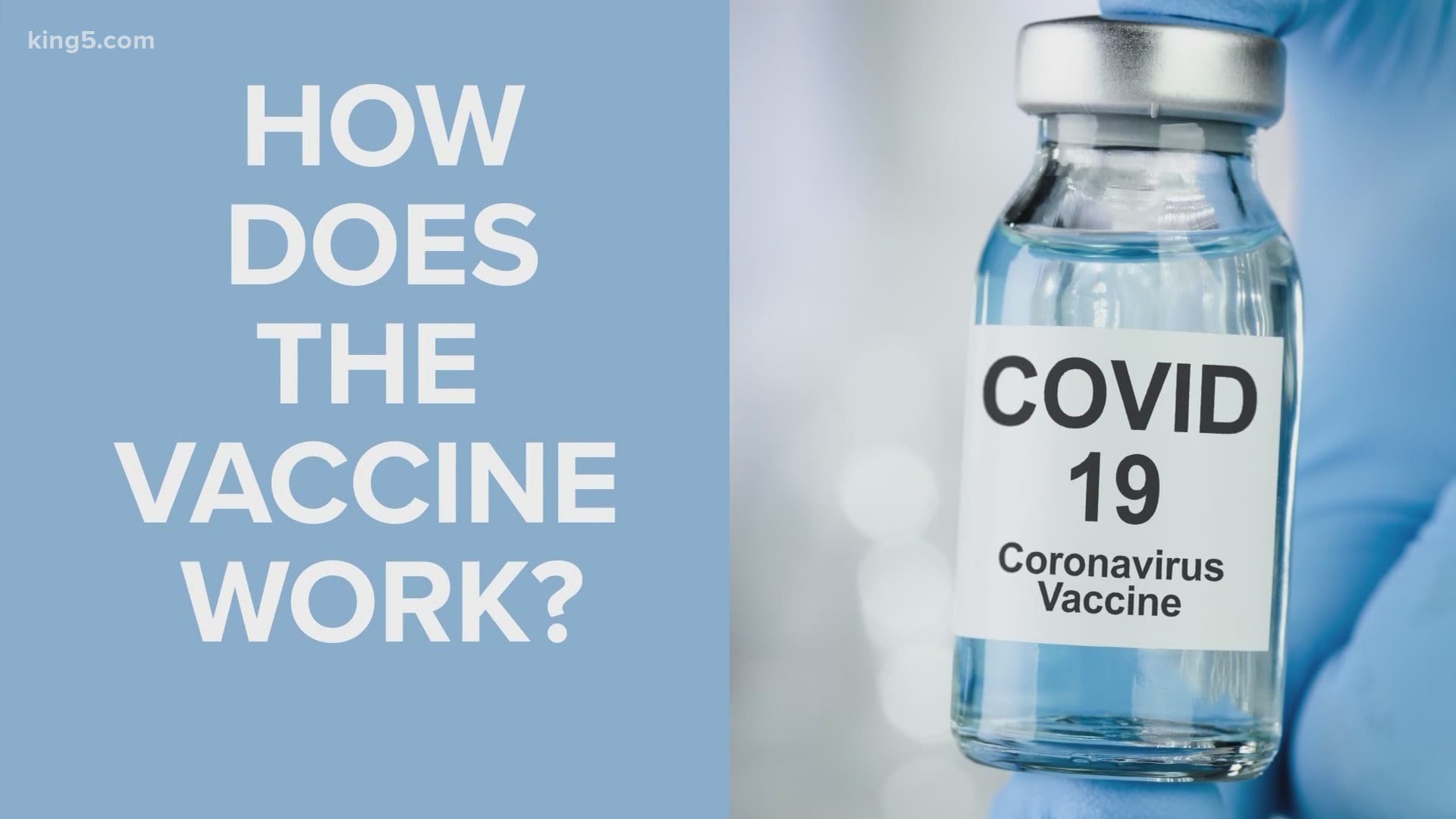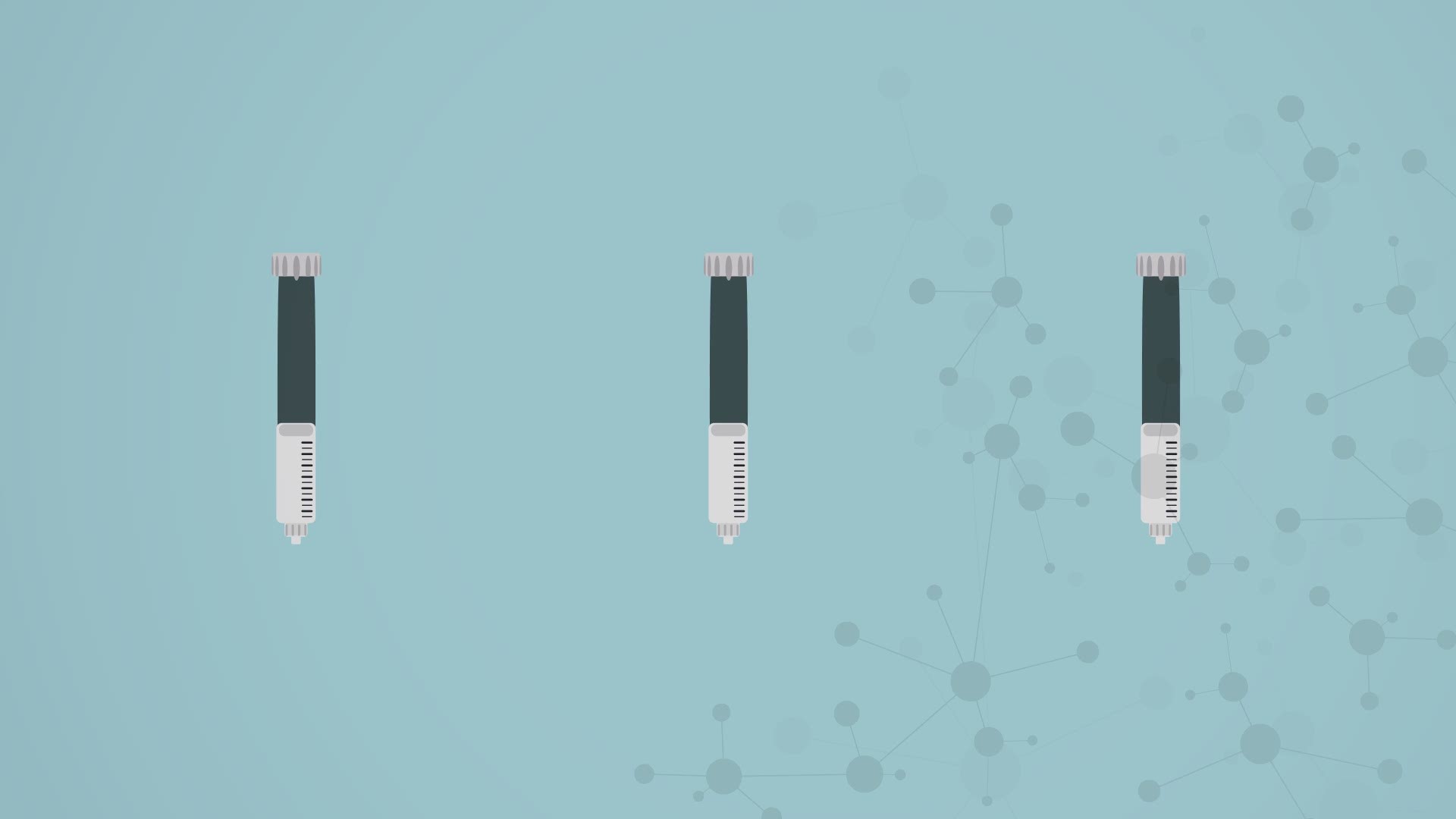Ready and available vaccines for COVID-19 are on the horizon.
Biopharmaceutical companies Pfizer and Moderna both recently announced that their coronavirus vaccines have around 95% efficacy. Both companies are now rushing to obtain regulatory clearances from the Food and Drug Administration (FDA), both having applied for emergency use authorization.
As these vaccines are being produced in record time, and much is still unknown about their long-term effects, much remains unanswered.
Q: How long does the COVID vaccine last once administered?
A: Natural immunity to COVID-19, meaning the protection an individual gains from already having been infected, varies from person to person. Evidence shows that it may not last very long. Concerning vaccination, the CDC website clearly states in its COVID-19 information page that, "we won’t know how long immunity lasts until we have a vaccine and more data on how well it works.”
While knowledge about vaccine-induced immunity is still not thorough, scientists and researchers are hard at work to fill in the gaps about the vaccine’s duration and effectiveness. In response to being asked how long the COVID-19 vaccine would last, Carl Zimmer at The New York Times answered, “We don’t know. Both Moderna and Pfizer started their trials on July 27, so they have been able to follow their volunteers for only a few months so far. It’s conceivable that the vaccines provide long-lasting protection or fade away in under a year and require a booster.”
Q: Can employers force you to get the vaccine?
A: Employers are legally allowed to have vaccine mandates. Washington is an at-will employer state, which means an employee could be fired at any time for any legal reason or no reason, with some exceptions like religion or disability.
Q: When will Washingtonians get the vaccine?
A: Washington state is expected to have about 222,000 doses of Pfizer’s novel coronavirus vaccine by the end of December. The first group that will receive the COVID-19 vaccine in Washington will be high-risk health care workers and also “folks in long-term care settings.” Washington will “be getting around 62,400 doses” of Pfizer’s vaccine by Dec. 15.
The state is also expected to receive about 180,000 doses of the Moderna COVID-19 vaccine by the end of December, pending approval from the FDA, which is expected to meet on the topic on Dec. 17.
Q: Can kids get the vaccine?
A: While it may only be weeks until a COVID-19 vaccine is approved for emergency use in the U.S., it will likely be a longer wait for people under 18. Infectious disease expert Anthony Fauci recently announced that once vaccines hit the market, they will not initially be available to children because few children have participated in clinical trials for the vaccine. Children’s immune systems are different from adults. As such, there might be discrepancies in vaccine effectiveness between the two age groups.
Q: Why did the UK get emergency authorization first?
A: On Wednesday, Dec. 2, the United Kingdom became the first Western country to authorize the COVID-19 vaccine for emergency use. Britain was one of the European countries worst hit by the coronavirus. Britain’s emergency authorization approval came after a review by health authorities, although some European regulators cast doubt on the thoroughness of the review, says The New York Times. This announcement has sparked some confusion and feelings of impatience amongst the American public as more lives are lost due to the virus. The U.S. Food and Drug Administration is working meticulously to authorize the COVID-19 vaccine safely and responsibly.
Knowledge about COVID-19 vaccines is still growing. Scientists and researchers are hard at work to fill in the gaps about vaccine duration, effectiveness, and distribution.
Q: What is the status of a COVID vaccine being made available for children?
A: According to The New York Times, the United States has not yet determined whether or not the COVID vaccine will be safe for children. As previously stated, few children have participated in vaccine trials, and much remains unknown about their safety and effectiveness for that age group. The New York Times reported that it may take upwards to a year from now to get a COVID-19 vaccine ready for children. Before that happens clinical trials with children must be implemented and the child vaccine protocol must be approved by the FDA.
Q: If I’ve already contracted COVID, how long should I wait to get the vaccine?
A: So far, experts advise that individuals who have gotten sick with COVID-19 in the past should still get the vaccine due to risk of reinfection. The CDC website states that experts do not know how long natural immunity after recovering from the virus lasts. Natural immunity varies from person to person. As such, the CDC says there is no agreed upon waiting period before getting the vaccine after initial infection as of yet. There is just not enough information yet. The CDC will keep the public informed as more information becomes available.
Q: Are there any side effects to the COVID vaccine?
A: On Nov. 18, Pfizer issued a press release detailing information about their COVID-19 vaccine. While there is no evidence of long term side effects, notable short term side effects include fatigue at 3.8% frequency and headache at 2%.
Q: Are the vaccines from Pfizer and Moderna compatible?
A: The CDC published an extensive COVID-19 Vaccination Program Interim Playbook in which it states, “different COVID-19 vaccine products will not be interchangeable,” meaning both of a vaccine recipient’s doses must be from the same manufacturer.
Q: Is it true that if you get the COVID-19 virus and recover from it, you are then immune?
A: This is not true. At this time, not much is known about COVID-19 natural immunity, reports the CDC. Experts do not yet know how long someone is protected from getting sick again after recovering from COVID-19. Natural immunity after initial infection with the coronavirus varies from person to person. The CDC has also warned that cases of reinfection have been reported. People who have gotten sick from COVID-19 will still benefit from receiving the vaccine.
Q: What happens if the COVID-19 vaccines that require refrigeration accidentally warm-up?
A: COVID-19 vaccine products are temperature sensitive. As such, they must be stored and handled correctly to ensure shelf life and efficacy. In the process of vaccine distribution, there will be a cold chain with well-trained staff and reliable equipment, says the CDC Vaccination Program Interim Playbook. The COVID-19 vaccine must be handled and stored at a cold temperature until the vaccine is administered with Moderna’s kept at minus 20 Celsius, and Pfizer’s at minus 70 Celsius.
The Vaccination Playbook adds, “If COVID-19 vaccines are exposed to temperature excursions at any time, the temperature excursion should be documented and reported according to the jurisdiction immunization program’s procedures. The vaccines that were exposed to out-of-range temperatures must be labeled 'do not use.'"



